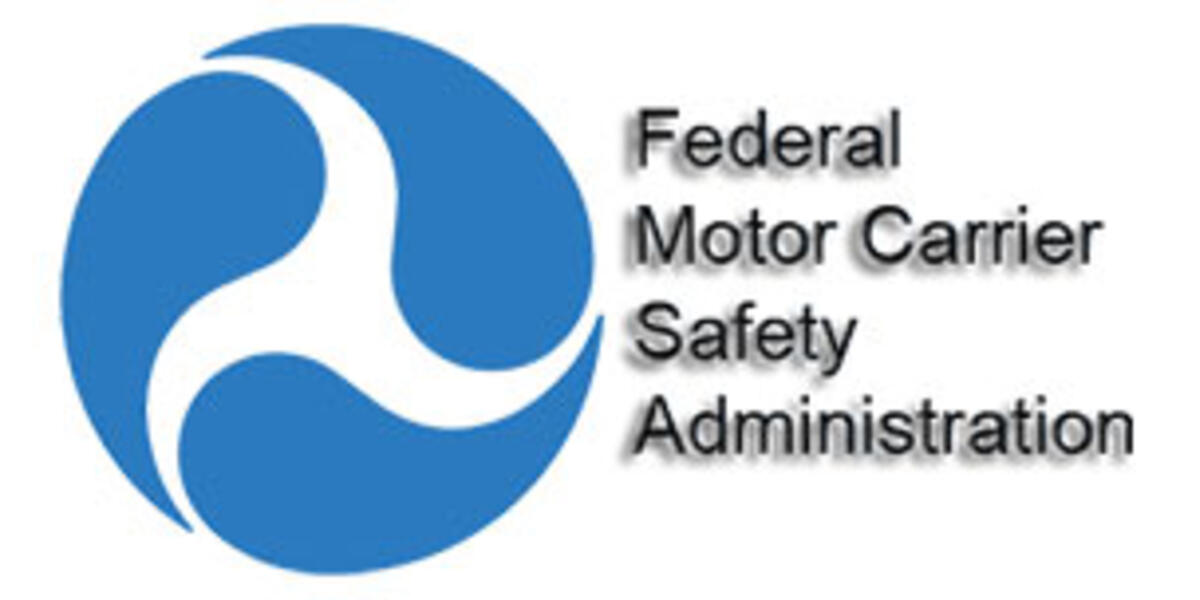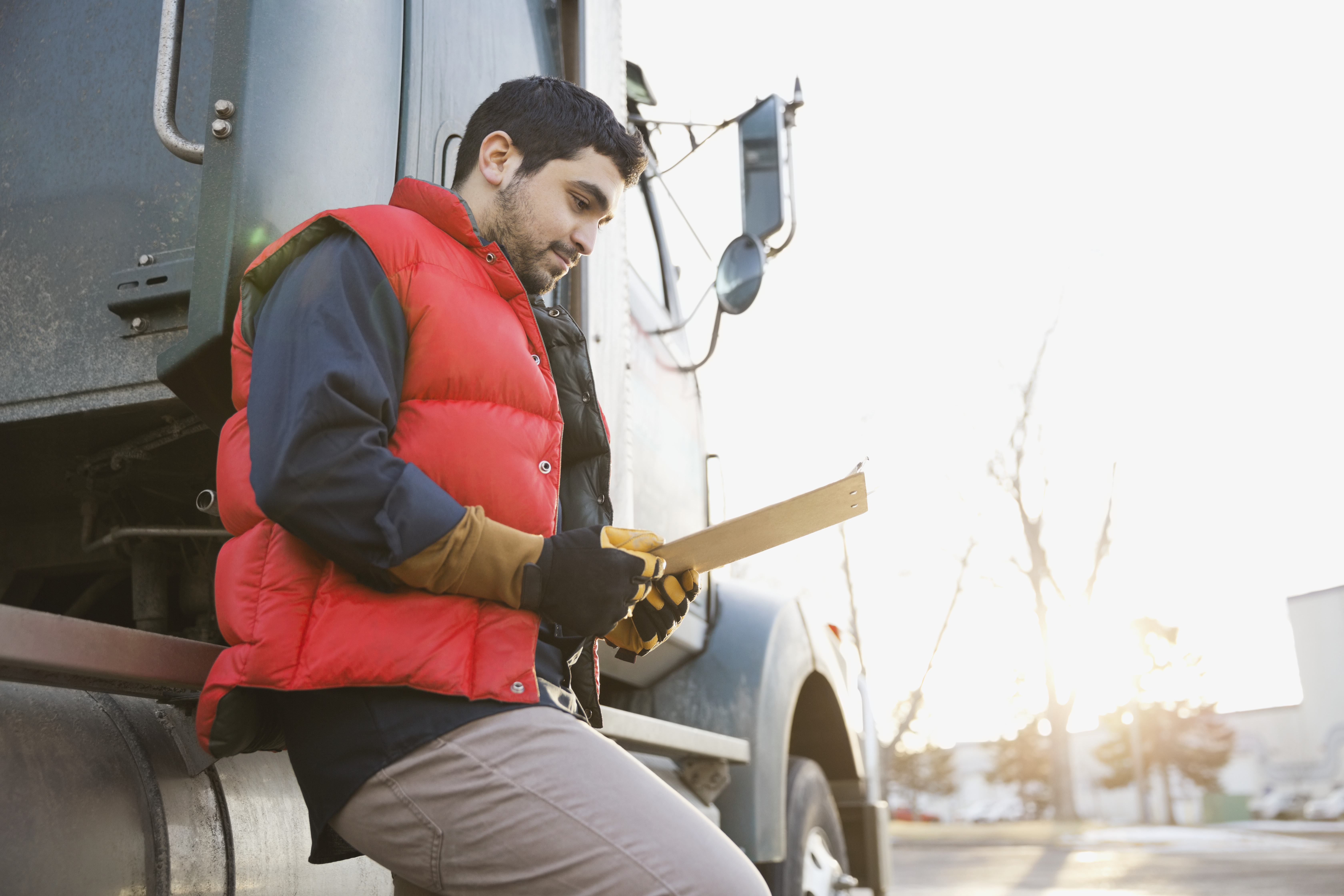What documentation is required to be kept in the vehicle for units I have from Idealease, showing that the vehicle is leased or rented?
If the vehicle is subject to the Federal Motor Carrier Safety Administration (FMCSA) regulations (weighing over 10,000 lbs. Gross Vehicle Weight Rating [GVWR]), documentation must be kept in the vehicle for the duration of the lease or rental.
-
Lease vehicles are subject to FMCSA regulation CFR 376.11(c), which
requires a copy of the lease or a certified statement of lease with the required information to be kept on the vehicle during the lease period.
- Rental vehicles are subject to FMCSA regulation CFR 390.21(e)(2)(iv), which requires a copy of the rental agreement to be carried in the vehicle for the duration of the rental.
My driver is complying with the ELD regulations, but the commercial vehicle they are driving becomes disabled, and they need to operate a rental. What ELD exemptions allow them to complete paper logs while operating a rental unit?
- Drivers using a rental vehicle for 8 days or less (FMCSA letter of exemption must be available to an officer upon request).
- Drivers who use paper logs for no more than 8 days during any rolling 30-day period.
- Drivers conducting driveaway-towaway operations, where the vehicle is the product being delivered.
- Drivers of vehicles manufactured before the model year 2000.
- Drivers operating under the logbook exception (i.e., short-haul 150 air-mile radius) and who can comply with the exception for 22 days out of a rolling 30-day period.
- Intra-state operations (check with your state carrier enforcement agency).
I am using a driver leasing company; who is responsible for compliance with the Federal Motor Carrier regulations?
Driver services and leasing companies are not motor carriers and are not responsible for compliance with regulations. The leasing company may complete tasks such as driver qualification files, annual reviews, road tests, etc., at the direction of the motor carrier. However, the motor carrier is ultimately responsible for any non-compliance with FMCSA regulations.
As a driver, am I responsible for ensuring that the cargo in my truck is properly secured, even if I did not load it?
Yes. FMCSA regulations in CFR 392.9(a)(1) state that a driver may not operate a commercial motor vehicle unless the cargo is properly distributed and adequately secured as specified in §§ 393.100 through 393.142.
Do I need a CDL to operate that truck?
The regulations addressing this are found in FMCSA CFR 383.3.
- §383.3 Applicability: The rules apply to anyone who operates a commercial motor vehicle (CMV) in interstate, foreign, or intrastate commerce, all employers of such persons, and all States.
- A commercial motor vehicle (CMV) is defined as a motor vehicle or combination used in commerce to transport passengers or property, if the vehicle:
- Has a gross combination weight rating (GCWR) of 26,001 lbs. or more, including a towed unit over 10,000 lbs. GVWR;
- Has a gross vehicle weight rating (GVWR) of 26,001 lbs. or more;
- Is designed to transport 16 or more passengers, including the driver;
- Is any size and used in transporting hazardous materials as defined by FMCSA.
What disqualifications would prevent a driver from receiving clearance in the security threat assessment process for a hazardous materials endorsement?
Conviction of any of the following crimes disqualifies a driver from eligibility for a hazardous materials endorsement:
- Terrorism, assault with intent to murder, murder, espionage, sedition, kidnapping or hostage-taking, treason, rape or aggravated sexual abuse, extortion, robbery, arson, bribery, smuggling, immigration violations, RICO violations, unlawful possession, use, sale, or distribution of explosives, firearms, or weapons, controlled substance distribution or possession, dishonesty or fraud (including identity fraud), crimes involving severe transportation security incidents, improper hazardous material transportation, or conspiracy to commit any of these crimes.
All drivers seeking to renew or apply for a new hazardous materials endorsement must complete the “Security Threat Assessment” process. Drivers should begin this process 90 days before their license expires. To start the assessment, visit: TSA Hazmat Endorsement Security Threat Assessment.
What do FMCSA regulations say about my driver who has a current medical certificate but has developed a medical condition that may make the operation of a commercial motor vehicle (CMV) unsafe?
FMCSA regulations prohibit a driver from operating a CMV if their ability or alertness is impaired by fatigue, illness, or any condition that makes it unsafe to drive. Even with a valid medical certificate, a driver is prohibited from operating a CMV if a medical condition exists that would disqualify them or interfere with safe vehicle operation. If a disqualifying medical condition resolves, the driver must obtain re-certification from a Medical Examiner before resuming CMV operation (FMCSA CFR 391.45).
Is an employer required to conduct a pre-employment query of the Drug and Alcohol Clearinghouse for a driver-applicant subject to 49 CFR Part 382 before administering a road test in accordance with 49 CFR 391.31?
No. Employers are not required to conduct a pre-employment query of the Clearinghouse
before administering a road test to a prospective driver subject to 49 CFR Part 382. Under § 382.701(a), employers must query the Clearinghouse when hiring a driver for safety-sensitive functions. Since the road test occurs before the driver is hired, employers may conduct a pre-employment query when they road test the driver but are not required to do so.
How do Medical Examiners differ from Medical Review Officers?
A Medical Review Officer (MRO) is a licensed physician responsible for receiving and reviewing laboratory results from an employer's drug testing program and evaluating medical explanations for test results. More information on MROs is available at DOT MRO information.
A Medical Examiner is a person licensed, certified, or registered to perform physical examinations, in accordance with state laws and regulations. This includes, but is not limited to, doctors of medicine, doctors of osteopathy, physician assistants, advanced practice nurses, and chiropractors. To find a certified Medical Examiner near you, visit: FMCSA National Registry.










